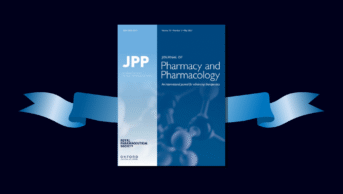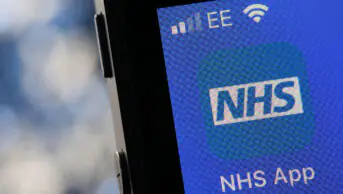
Wes Mountain/The Pharmaceutical Journal
Before you start thinking this is a blog about pharmacists becoming astronauts and embarking on a mission into space, we must stop you. This article is about three pharmacists from the ‘SPACE’ study: ‘A multicentre study to investigate a protocol-driven multidisciplinary service model to tackle “spurious penicillin allergy” in secondary care’.
All three of us have been antimicrobial stewardship pharmacists for some time, so we were well versed with the adverse implications of false penicillin allergy labels on antimicrobial resistance and the benefits of penicillin allergy assessment. As independent prescribers and non-allergy specialists, the objective of the study for us was to remove the false penicillin allergy labels and test the feasibility of a new de-labelling protocol in the NHS.
Penicillin allergy testing is not routinely available to most patients. It involves taking a careful medical history, a review of medical records, an allergy skin test, and an oral challenge (giving penicillin by mouth under supervision). Allergy testing can take a long time and is performed in a small number of allergy clinics by specialists. New evidence, however, suggests that, in some patients with a false penicillin allergy label, an oral challenge without skin testing is safe and can be carried out by non-allergy specialists, such as pharmacists. The SPACE study investigated this concept, and we were among the first pharmacists to test this protocol in secondary care. We were thrilled to work as SPACE study pharmacists, as it presented an opportunity to explore the research domain that many pharmacists struggle to showcase in the Royal Pharmaceutical Society’s (RPS’s) Advanced Pharmacy Framework. Believe us, it wasn’t easy, as the pathway for research for clinical pharmacists is not clear.
We were new to research, so there was a steep learning curve and a lot of training to undertake
We were new to research, so there was a steep learning curve and a lot of training to undertake — the phrase “good clinical practice” in research encompasses a large amount of documentation and regulatory obligations. We also had to familiarise ourselves with the ethics approvals and study protocols, and segregate our roles as researchers and clinical pharmacists. We involved the public in our research by setting up the ‘Patient and public involvement and engagement group’.
Our role included patient recruitment, taking patient consent to enrol in the study, taking an allergy history and investigating the nature of penicillin allergy. Where penicillin allergy was unlikely to be true, we prescribed a direct oral penicillin challenge to remove the false labels. Before administering the penicillin, we measured blood pressure, heart rate and oxygen saturation. After administering the challenge, we observed our patients for one hour.
We were able to rely on our skills in allergy history taking, assessing patients’ suitability to have a direct oral challenge and prescribing antibiotics required for penicillin allergy testing. The oral challenge was undertaken in hospital, where support from clinical teams was easily accessible. After each appointment, we followed up patients with a phone call five days after the challenge to confirm penicillin allergy status and shared the result with their GP.
For successful delivery of the SPACE study, we provided leadership at the study sites. We raised awareness about the adverse implications of false penicillin allergy labels and the visibility of the study through our connections with the clinical teams. We proactively engaged with them by participating in the governance meetings, establishing referral pathways and delivering presentations at lunchtime learning sessions prior to the start of the study.
Our first participant described a scenario from 20 years ago, where they felt nauseous and vomited after taking a penicillin antibiotic. Although we were following the SPACE study protocol and were certain they did not have a true allergy, we were nervous. One hour of observation felt like forever and we were relieved when the clinic appointment was over.
After the first participant was de-labelled successfully, we felt elated and ready to tackle every false penicillin allergy label. We imagined we would de-label ten participants per day, but the start was slow. It took a few months for recruitment to pick up and we began to receive more referrals from the clinical teams. This was testament to the consistency with which we approached building the recognition of the importance of penicillin allergy testing across our organisations — clinical teams developed trust in our study. Overall, we received positive feedback from all participants, which kept us motivated. It was especially rewarding when we could safely and confidently offer patients penicillin antibiotics after their assessment.
As we approached the end of the study, we were very proud of being part of it and felt we had uncovered potential for new roles for pharmacists in future
As we approached the end of the study, we were very proud of being part of it and felt we had uncovered potential for new roles for pharmacists in future. We feel a sense of responsibility to share our experience and have used regional, national and international platforms to put a spotlight on non-allergy specialists taking action in tacking false penicillin allergy labels and promoting antimicrobial stewardship.
Our roles as research pharmacists in the SPACE study pushed us to step outside our comfort zones. We gained new skills and opened new doors. Rashmeet has taken her learning from this study further by becoming a co-author on the British Society of Antimicrobial Chemotherapy online course for penicillin allergy de-labelling by non-allergy specialists, as well as raising awareness of false penicillin allergy labels in the national European Antibiotic Awareness Day (EAAD) campaigns, incorporating antibiotic allergy teaching into the undergraduate MPharm programme at the University of Birmingham and is pursuing a doctoral degree in the global impact of false antibiotic allergies.
Bee, within her role as specialist antimicrobial stewardship pharmacist, continues to establish non-allergy specialist led de-labelling as standard of care in her trust and is leading a project in partnership with the Kilifi County Referral Hospital in Kenya, which aims to set up a strong, sustainable and integrated antimicrobial stewardship programme.
Kornelija is pursuing a doctoral degree exploring how false penicillin allergy labels are perceived and managed in primary care.
We hope some of you by now have seen the RPS campaign and publications of the results of the SPACE study and questioned if your patients, friends, or family were truly allergic to penicillin and could be de-labelled.
A lot of exciting work in managing penicillin allergy is ongoing across the NHS, so watch this SPACE…
Further reading
- British Society for Allergy and Clinical Immunology (BSACI) guideline for the set-up of penicillin allergy de-labelling services by non-allergists working in a hospital setting;
- ‘A multicentre study to investigate a protocol-driven multidisciplinary service model to tackle ‘spurious penicillin allergy’ in secondary care’ (‘SPACE’ study);
- The Royal Pharmaceutical Society’s ‘Penicillin allergy checklist‘;
- Future Learn’s ‘Understanding Penicillin Allergy Assessment and Delabelling‘.


